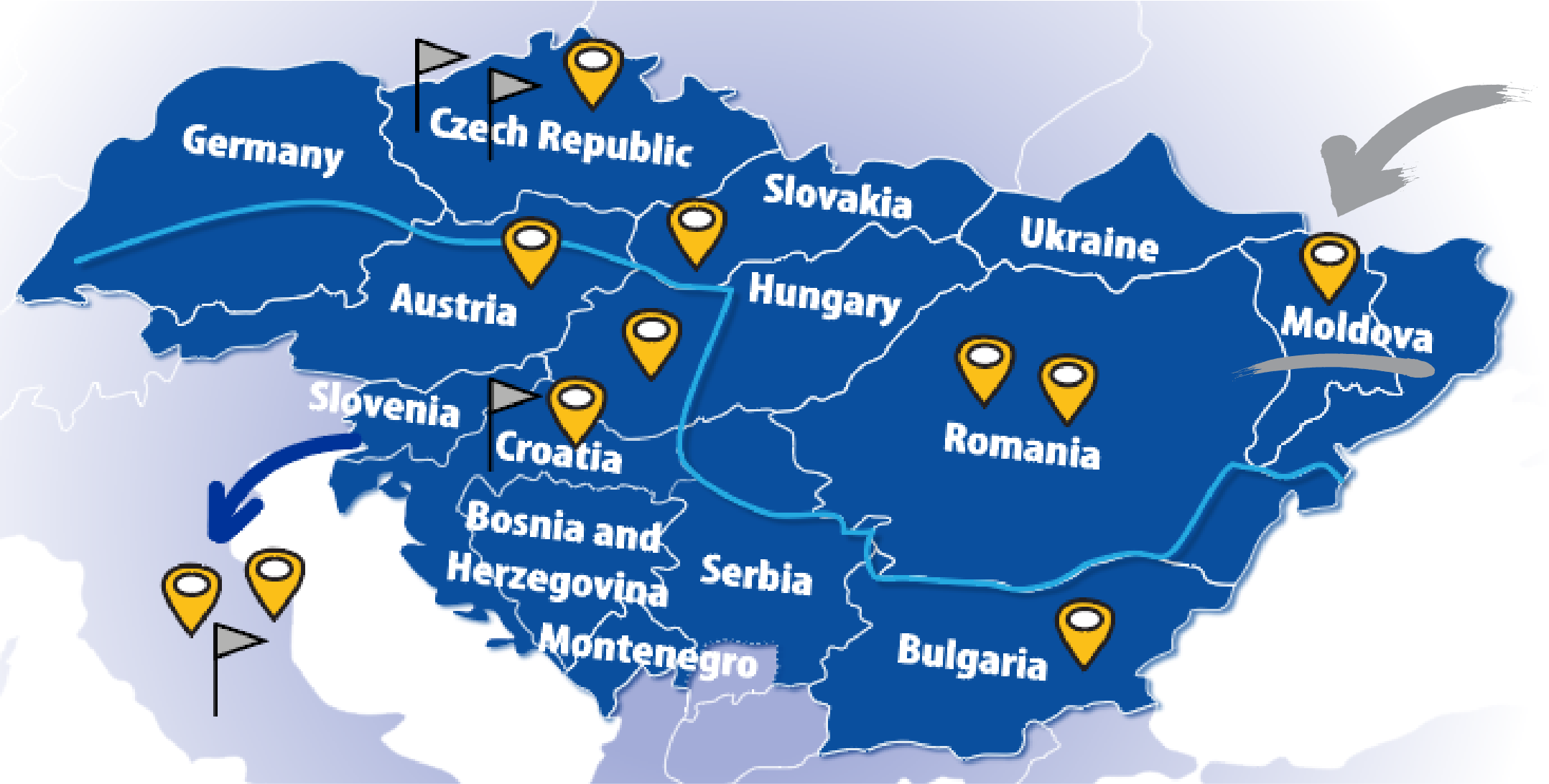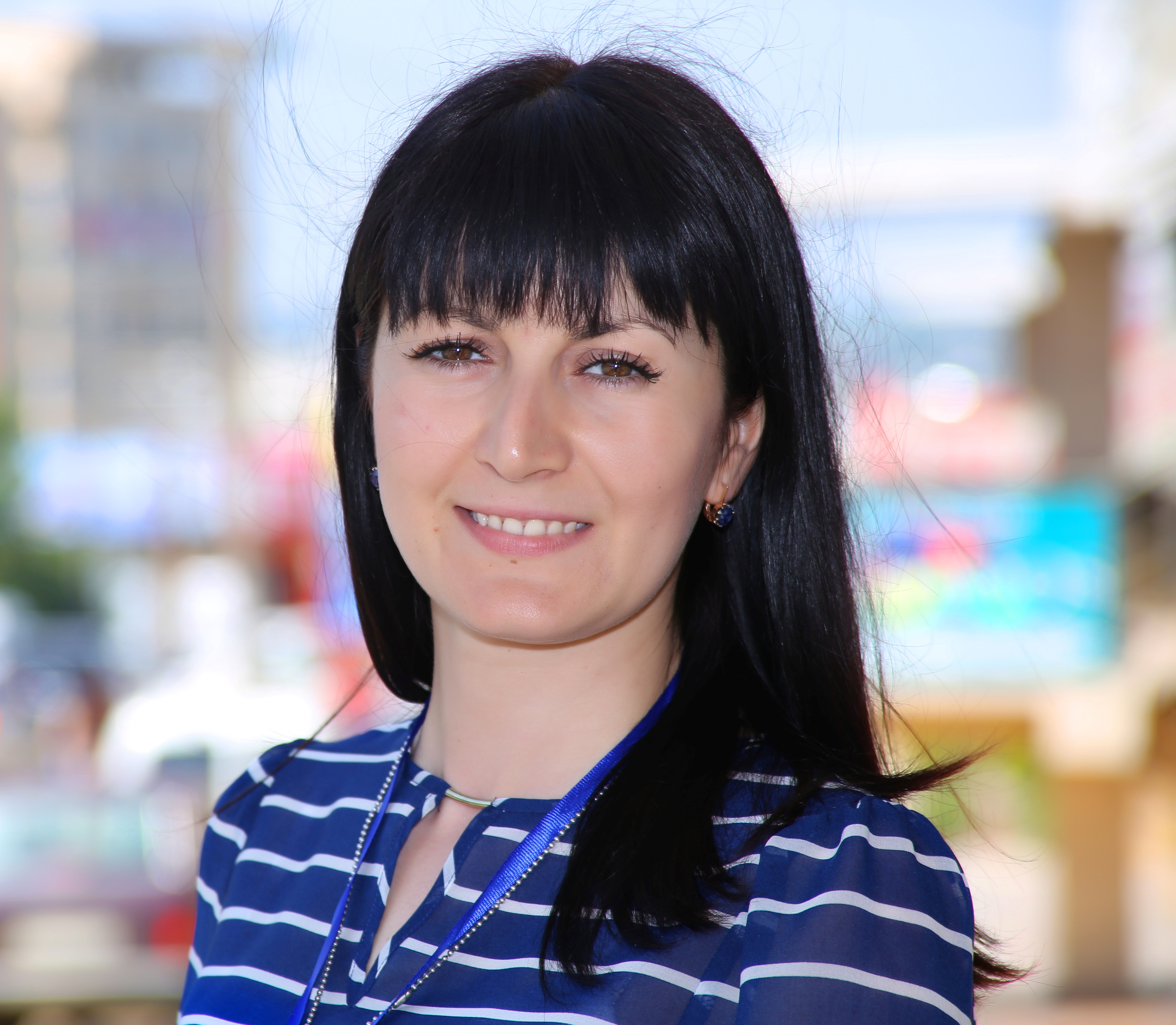SABRINA - Welcome to Moldova! – SABRINA Project Partner: Automobile Club of Moldova
14-12-2020
Bine ați venit în Moldova! – Welcome to Moldova!
Moldova is one of the 14 countries included in the Danube Transnational Programme. The project partner in the Safer Bicycle Routes in Danube Area (SABRINA) project from Moldova is the Automobile Club of Moldova (ACM). The ACM is a non-governmental organization (NGO) created in 1998. Already a year later they became members of the Alliance Internationale de Tourisme (AIT) and Federation Internationale de l'Automobile (FIA). The ACM is also a member of the European Road Assessment Programme (EuroRAP) and the Global Alliance of NGOs for road safety. It is the main promoter of road safety, a healthy and green environment in Moldova, and the main link between public authorities and civil society for more effective management of social problems, with road safety in its core. For their extraordinary work, they were awarded twice with the Prince Michael International Road Safety Award.
In 2009, the ACM supported by the Eastern Alliance for Safe and Sustainable Transport and FIA Foundation launched a Make Roads Safe Campaign involving senior members of the Moldovan government. This led to the creation of a new National Road Safety Council chaired by the Prime Minister and involving key ministers and later to the reform of road traffic enforcement in the country. Since its establishment, the ACM has fought hard to keep road safety in Moldova high on the political agenda. Its main goals include improving the standards of road traffic and road signaling, making the issuance of driving licenses fair and transparent, as well as taking measures for the improvement of road safety and crash prevention on public roads.

We have talked with Tatiana Mihailova, Project Manager at the ACM, about their role in the SABRINA project, road safety, and the cycling infrastructure safety in Moldova.
The ACM has done impressive work in improving road safety in Moldova. The ACM has played a significant role in reducing the road casualties in Moldova since 2008 (from 509 deaths in 2008 to 274 in 2018). What kind of recipe works in the case of Moldova to improve road safety and reduce the number of fatal accidents?
The recipe is a mixture of different activities and efforts. In the past decade, we made an extended assessment and consistent identification of relevant and dedicated stakeholders and their engagement in road safety. It is very important to ensure the involvement of high-level politicians, including prime ministers, relevant ministers, and members of parliament. Their commitment to road safety and the commitment of city leaders is crucial. Besides, advocacy of road safety improvements of legislative and institutional changes play a big role in the positive changes that happened in Moldova since 2008. The ACM team members were personally involved in some road safety policy changes. Moreover, awareness-raising campaigns and road safety promotions, focusing on the right target groups at national and local levels, are also very important.
In 2009, you launched the Make Roads Safe campaign, which brought many positive changes regarding road safety in Moldova. Recently, you have joined a global campaign #ThisIsMyStreet (article about this HERE) which focuses on transforming the streets for children, youth, and climate. In your contribution, you have highlighted especially vulnerable road users. Amongst them are also cyclists. Cycling infrastructure safety is the area the SABRINA project focuses on. What does it mean for the ACM and for Moldova to be part of this project?
 The safety of cyclists in Moldova is at very high risk since the cycling infrastructure is underdeveloped and, in most parts, not safe. Therefore, it is very important for the ACM to be part of the SABRINA project. Our role in the project is to highlight the issues of Moldovan cycling infrastructure at the highest level by collecting the existing cyclists’ data and improving of collection methodology; we will analyze the infrastructural gap and identify the main challenges for cyclists. Besides, the analysis of existing national legislation and the introduction of appropriate amendments are needed. The project goals are in line with the ACM’s activities directed to awareness-raising, better knowledge, and safer behavior of all road users, including cyclists. The cooperation with various road safety stakeholders to make the connections between local and national authorities and the community for safer roads and infrastructure is also a very important part of the project and our work in general. The SABRINA project is a good continuation of the iRAP, SENSoR, and RADAR projects where we participated in the past or which are still running, and we are very happy SABRINA focuses on cycling infrastructure safety, since this is really something where Moldova has a lot of work to be done. In a long run, in Moldova, the SABRINA project will have a high impact by influencing the national modifications in infrastructure elements and changes in road users’ (cyclists and drivers) behavior. We believe that the results of the project will help to raise Moldovan cycling safety at European standards in the future.
The safety of cyclists in Moldova is at very high risk since the cycling infrastructure is underdeveloped and, in most parts, not safe. Therefore, it is very important for the ACM to be part of the SABRINA project. Our role in the project is to highlight the issues of Moldovan cycling infrastructure at the highest level by collecting the existing cyclists’ data and improving of collection methodology; we will analyze the infrastructural gap and identify the main challenges for cyclists. Besides, the analysis of existing national legislation and the introduction of appropriate amendments are needed. The project goals are in line with the ACM’s activities directed to awareness-raising, better knowledge, and safer behavior of all road users, including cyclists. The cooperation with various road safety stakeholders to make the connections between local and national authorities and the community for safer roads and infrastructure is also a very important part of the project and our work in general. The SABRINA project is a good continuation of the iRAP, SENSoR, and RADAR projects where we participated in the past or which are still running, and we are very happy SABRINA focuses on cycling infrastructure safety, since this is really something where Moldova has a lot of work to be done. In a long run, in Moldova, the SABRINA project will have a high impact by influencing the national modifications in infrastructure elements and changes in road users’ (cyclists and drivers) behavior. We believe that the results of the project will help to raise Moldovan cycling safety at European standards in the future.
We can see in many places around the world, and especially in Europe (e. g. Paris, Rome) how cycling is for now coming out of the Covid-19 pandemic as a winner. The cities are improving the cycling infrastructure, demand for bicycles is huge, in many places it is impossible to buy new or even used bike. People look to bicycling as socially distant transportation and recreation option. What is the situation in Moldova? Has cycling gained in popularity in 2020? If yes, does the emerging role of bicycles serve as a critical reminder of the need to improve cycling infrastructure, making it safer and sustainable amongst other things?
Pandemic, lockdown, and the situation in public transportation connected with the current reality have changed the behavior of road users in Moldova. The current situation has led people to the use of alternative transport. We can witness that especially young people despite different difficulties in the form of infrastructure challenges and weather conditions if we list only two, use bicycles. Moreover, elder people and women have appeared among cyclists in the cities, which was not really the case before the pandemic. All this is beginning to revive the pressure on the authorities to shift their attention also to cycling infrastructure and its safety. Moreover, the authorities have begun to pay attention to the insistent demands, including the infrastructure for alternative transport, when planning future road rehabilitation. At the local level, the authorities have agreed to consider the Strategy for cycling and alternative transport in Chisinau, which has been developed in partnership with the ACM. However, this is just the beginning. Since such work and developments have not been done earlier, a lot of patience and efforts will be needed to move things ahead. Therefore, we are very happy to be part of the SABRINA project. We believe that especially inspection of the cycling networks, risk mapping, and specific data collection, will be important parts of the positive changes in the field of cycling infrastructure safety in Moldova.
Tourism was one of the areas most affected by Covid-19 pandemic. According to the World Tourism Organization Moldova was the least visited country in Europe in 2016. However, it is one of the fastest-growing travel destinations, so it will probably not be a hidden gem for long. If one wants to drive a car or ride a bicycle on their next trip to Moldova, they must prepare carefully: according to the 2019 Annual Economic Competitiveness Report, Moldova is in the top 15 countries with the worst roads in the world. Long-distance cycling routes are getting more popular also from a tourist point of view and EuroVelo routes play a significant role in this respect in Europe. There are no EuroVelo routes in Moldova yet. How would in your opinion the creation of safe cycling networks influence the tourism and economy in general in Moldova?
It is true there are no EuroVelo routes in Moldova yet. However, we have some projects dealing with the creation of different cycling routes. Every year we see bicycle races and marathons being organized, for which proper infrastructure is needed. Also, there are more and more tourist bicycle routes for example leading to wineries within the country. This is the potential for the development of different services in Moldova, such as local tourism with boarding houses, as well as the development of a potential Euro-Velo route, linking us with other countries. However, the development of safe road infrastructure for vulnerable road users (especially cyclists and walkers) is not important only from the tourist point of view. Safe infrastructure would have a lot of positive influence also to the quality of life of the local people. Our research on schools in the RADAR project (another currently running Danube Transnational Programme project where we are project partners) showed that parents are very concerned about road safety. In our surveys, they responded that there was a need to develop more opportunities for children, for example in the form of safe bicycle paths. This infrastructure needs to be developed. For now, roads are mostly dedicated to cars and they have priority. In the ACM, we promote the concept of road safety for all road users and work hard for the comfort and safety of all residents.
![]()



